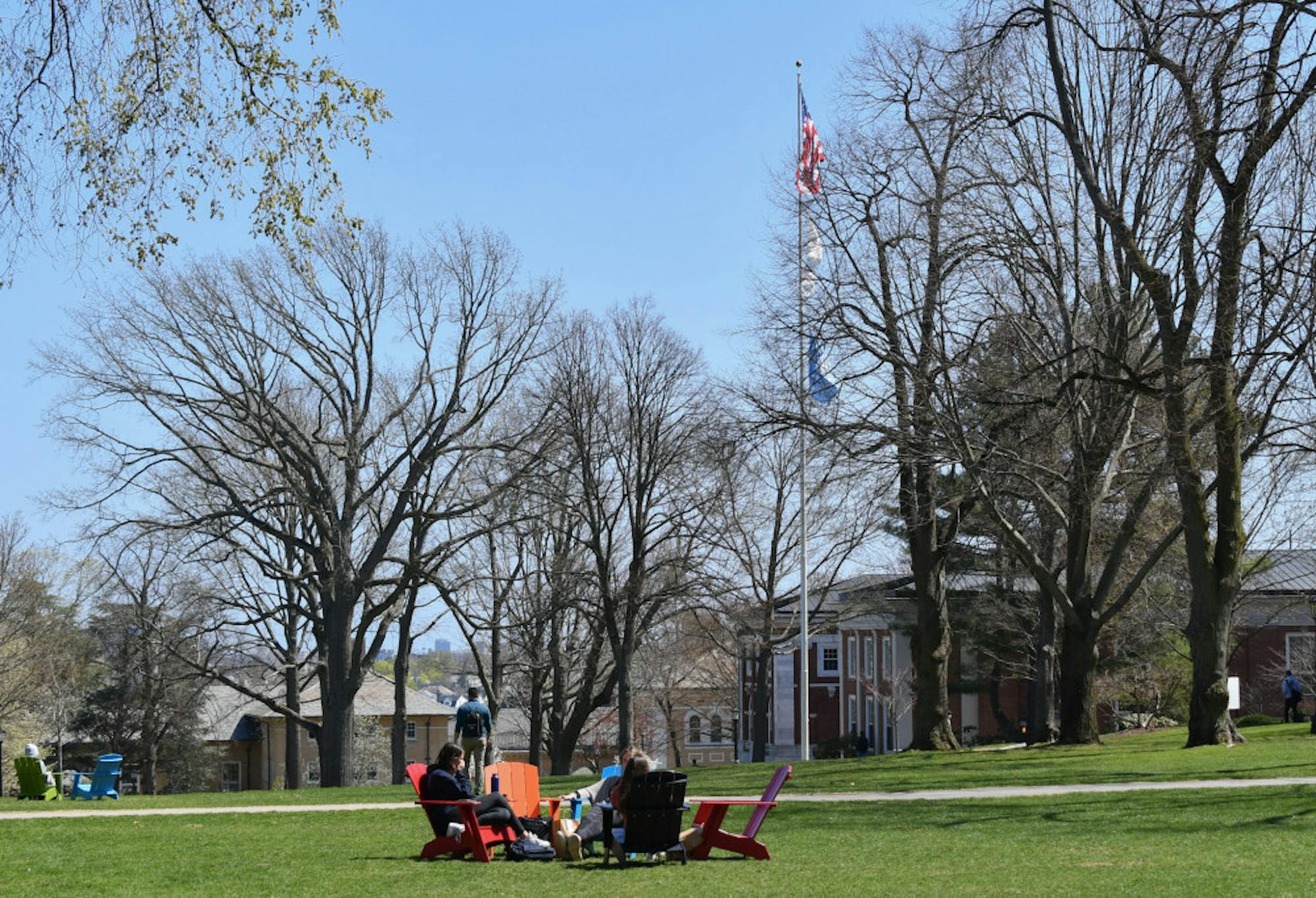University Infection Control Health Director Michael Jordan announced in an email to the Tufts community on April 25 that the Pfizer-BioNTech vaccine will be available to all students, faculty and staff between April 28 and 30 at the Gantcher Center.
According to the email, all students are required to be vaccinated prior to their return to campus for the fall 2021 semester. Students in the Tufts University Schools of Medicine and Dental Medicine, and the Cummings School of Veterinary Medicine, have a vaccination deadline of July 1. While faculty and staff are encouraged to get the vaccine, they have an option to decline, and there are also possibilities for religious and medical exemptions for all.
Prior to this announcement, students in the Tufts Community Union Senate attempted various efforts to call for a vaccination mandate and heighten accessibility to the vaccine for the Tufts community. In its final meeting of the academic year on April 19, TCU Senate passed a resolution regarding advanced accessibility on behalf of the administration for distribution of the COVID-19 vaccine for the upcoming fall 2021 semester.
The original wording of the resolution pushed for a vaccine mandate, but there was debate surrounding this aspect that prevented its inclusion into what was ultimately passed. In the end, the resolution passed without a vaccine mandate but with a call for heightened accessibility to the vaccine with 15 senators voting in favor, one opposing and six abstaining.
The original form of the resolution also cited international COVID-19 infection totals, vaccine efficacy statistics and information on how the virus disproportionately affects communities of color as reasons to institute a mandate.
Ritesh Vidhun, a member of the Administration and Policy Committee in the Senate and a Class of 2024 senator, was a member of the team of senators that conceptualized and proposed this legislation to TCU Senate.
He spoke to the original motivations for the legislation regarding hope, accessibility and inequity.
“We saw increases in vaccine rollouts across the country and I guess we just had more optimism that students would be able to be vaccinated over the summer,” Vidhun, a first-year, said.
He mentioned the inequities within health and vaccine distribution that the resolution addresses, particularly in the final version.
“If a large majority of students are vaccinated, it would directly help those communities on campus that are particularly at risk for illness for COVID, specifically immunocompromised students, students of color," Vidhun said. "We felt that this policy or this mandate would promote equitable protection from the virus.”
Ibrahim AlMuasher, a Class of 2023 senator, introduced the original legislation along with Vidhun. He spoke to why the Senate makes these sorts of recommendations, and the goals that he hoped this resolution would achieve. AlMuasher also noted that the Senate holds power in making recommendations to administration, as they serve as a voice of the student body, but that it is a soft power.
“This resolution was a way to try to begin that conversation with the admin,” AlMuasher, a sophomore, said. “I think us using that soft power is sort of saying, ‘Hey, students support this, please support this as admin.’”
Before this resolution was introduced, the committee that brought it forward ran a survey in order to gain a pulse on student opinion regarding a vaccine mandate.
The survey found that out of 346 responses, 87.6% of students either strongly agreed or agreed with the statement, “I would support Tufts mandating a COVID vaccine requirement for all on-campus community members for the Fall semester.”
Additionally, 94.2% of respondents strongly agreed with the statement, “I would support Tufts making the vaccine available to all students as soon as that is possible,” and 5.5% agreed. Only five respondents, comprising 1.5% of the data, strongly disagreed.
Despite the support displayed by the student body, there was some pushback within the discussions held by the Senate on April 19. Vidhun spoke on the chief criticisms of the resolution, which were largely comprised of beliefs that the vaccine mandate would be inequitable and inaccessible for a significant portion of the student body.
“The main criticism … was sort of saying that this mandate would be inequitable, because students who are marginalized in our country, and specifically international students also, might not be able to access vaccines before the start of the year,” Vidhun said.
There was also discussion about the fact that Black Americans have historically been discriminated against within the field of medicine and wanted access to vaccination to be recognized within the final recommendation.
“Another issue that was brought up was hesitancy toward the vaccine, specifically how students who are Black might have generational trauma or past medical racial discrimination throughout American history, and it's important to acknowledge this,” Vidhun said.
Vidhun emphasized that when TCU Senate introduced this mandate resolution, it only wanted it to be established if the university could make vaccines accessible.
Both Vidhun and AlMuasher believe that vaccination within the greater Tufts community is essential to regaining a sense of normalcy. Similarly, Jordan touched on how vaccines represent this return to normalcy in his April 25 message.
“With increasing COVID-19 vaccination coverage and access, there is now, more than ever, a bright light at the end of the tunnel,” Jordan said.
Correction: A previous version of this article stated that 66.8% of respondents of a survey agreed with the statement, “I would support Tufts mandating a COVID vaccine requirement for all on-campus community members for the Fall semester.” However, 66.8% of respondents strongly agreed with that statement, and an additional 20.8% agreed. The Daily regrets this error.






